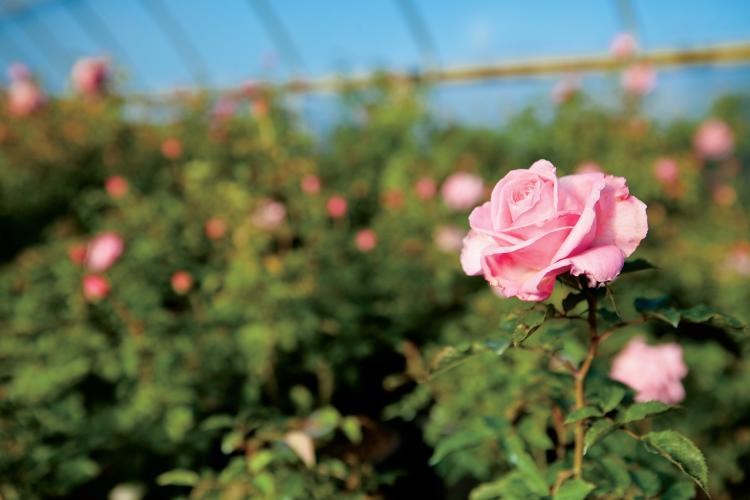Home > Nebraska > Nebraska Crops & Livestock > Plant Life: Nebraska Nursery Stock Inspectors Monitor for Disease
Plant Life: Nebraska Nursery Stock Inspectors Monitor for Disease

From asters to lilacs to willow trees, when you make an investment in a perennial or woody plant, you want to know that what you are adding to your home’s landscape has a good chance at surviving.
You shouldn’t be worried, according to State Entomologist Julie Van Meter with the Nebraska Department of Agriculture’s (NDA) Entomology Program. Through the program, NDA inspectors license and inspect firms that distribute nursery stock in Nebraska, checking for unwanted pests and plant diseases. NDA inspectors license over 1,300 nurseries, including 400 growers who raise over 2,000 acres of Nebraska nursery stock, to determine if the nursery stock meets the state’s certification requirements and can be distributed.
“Our goal is to keep plant pests, particularly exotic and invasive pests, from being distributed on nursery stock in Nebraska,” says Van Meter. “We want to protect the consumer who is purchasing the plant from getting a bad product, and we want to protect the nursery industry and the Nebraska landscape from disease and pest outbreaks.”
Nursery stock entering Nebraska from other states must be inspected and certified in the home state, and must meet Nebraska’s entry requirements before it can be shipped into the state. Upon arrival in Nebraska, the stock is inspected for signs and symptoms of insect and disease problems, mechanical damage, weeds and overall general health, Van Meter says.
Tom Hamernik, who along with his brothers Mike and Chuck owns Bluebird Nursery, Inc. in Clarkson, says NDA’s nursery stock inspections play a vital role in “protecting the entire community.”
“They protect our state from disease and insect issues,” says Hamernik, who also serves as president of the Nebraska Nursery and Landscape Association. “As a grower, they protect me from having satisfaction issues with my customers. And they protect the end consumer from fly-by-night nursery people that may not have the same types of sources that long-term nurseries and growers utilize.”
According to Van Meter, inspections help nursery stock producers identify pest problems early, when they are more easily managed, helping to reduce losses. The inspectors will also work with the producers to identify potential pathways for pest introductions, educate producers on various plant pest issues and work with the producers to achieve certification of their nursery stock.
“Once a pest becomes established, then you have to manage it,” Van Meter says. “Nobody wants to get home with a plant and find out it’s already infested with oystershell scale or bagworm, and have it spread to other plants in your yard.”
“They (the inspectors) give us more eyes and ears across the state so we know what to look for,” says Angie Vandersnick, owner of Nebraska Nursery & Color Gardens in Lincoln. “They’re very important to the nursery industry in general and the whole environment of the state.”



